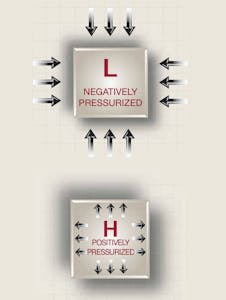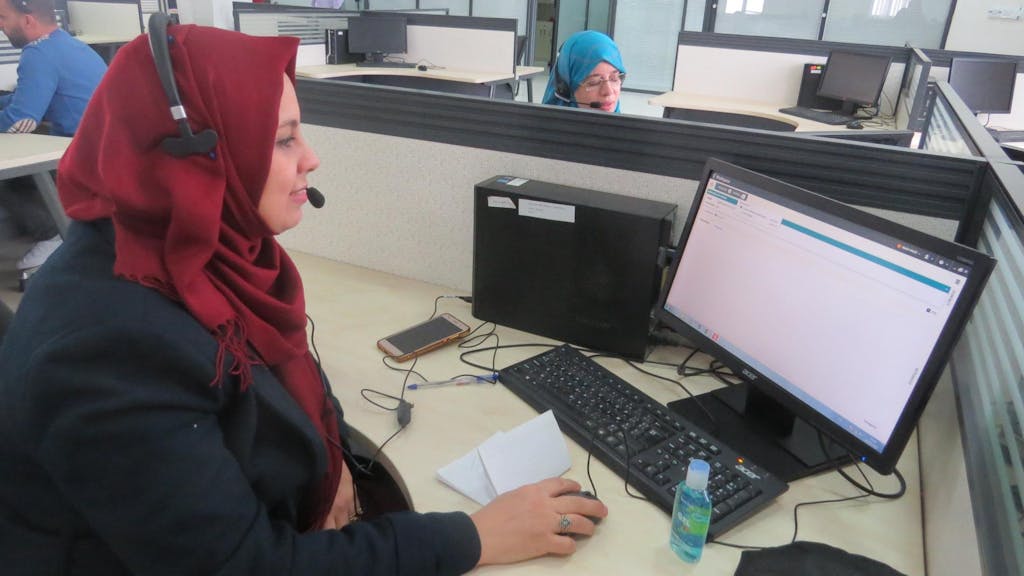With so many variables at play — demographics, public funding, international aid — the landscape of COVID-19 response looks different among countries and even communities. WHO is at the center of on-the-ground efforts around the world providing real-time updates, expertise, and coordination as governments, humanitarian agencies, and the public race to respond.
KENYA: CONTACT TRACING
Six years ago, when the Ebola outbreak started in Africa, “contact tracing” became a critical method for reducing transmission. A meticulous process of tracing all possible contacts with infected patients, contact tracing is extremely effective when done quickly and as broadly as possible. When Kenya announced their first case of COVID-19, the government shifted swifty to response mode, deploying WHO trained Rapid Response Teams (RRT) to start contact tracing. “You are protecting the entire community when you put in place a good contact tracing,” said Dr. Okot, Epidemiologist and Surveillance Technical Officer for WHO Regional Office in Africa. Dr. Jackson Njoroge, one of 1,500 clinicians trained for RRT, snapped into action and began finding and testing all people in recent contact with Kenya’s first COVID-19 patient. Dr. Njoroge emphasized that “there is no room for mistakes.” Proving his point, the RRT found that multiple contacts had contracted COVID-19; all began treatment immediately. Read more about WHO’s COVID19 response in Kenya.

IRAQ: NEGATIVE PRESSURE ROOMS
Preventing the spread of COVID-19 is the first step toward flattening the curve, which is why empty public spaces are encouraging signs. But as infections peak and hospitals become crowded, preventing transmission within their walls is essential. Iraq has a vulnerable health system, weakened by years of war and internal crises. Many facilities lack airborne infection isolation rooms, which are especially critical when cases surge. WHO prepared hospitals to take on the increased caseload by building negative pressure rooms in three cities to treat more serious cases. Negative pressure rooms can be retrofitted to any building; air is pumped into the room, filtered, and then pumped out through a window. The steady outflow means no air can escape the isolation room through doors or walls. Negative pressure rooms are an effective management strategy for in-hospital isolation and soon Iraqis affected by COVID-19 can access them in Baghdad, Erbil, and Basra. Read more about WHO’s work in Iraq.
IRAN: VACCINE TRIALS
Azadi Tower in Iran was aglow with the message of peace and solidarity last week as a point of hope amid one of the worst outbreaks of coronavirus on the planet. The country became one of the first to enter WHO’s Solidarity Trial to find a COVID-19 vaccine. Starting in early March, Iran began clinical trials across the country as part of the largest COVID-19 research study in the world. The simplified procedures of the Solidarity Trial allow even Iran’s overloaded hospitals to participate, generating robust data on potential treatments for the virus.
“These important medicines will not only support the treatment of patients… but will also help the country contribute significantly to the Solidarity Trial in an effort to find an effective treatment for this virus,” said WHO’s Iran Representative, Dr. Christoph Hamlemann. Iran is testing two of four primary subjects: an antiviral compound called remdesivir; malaria medications chloroquine and hydroxychloroquine; a combination of two HIV drugs, lopinavir and ritonavir; and that same combination plus interferon-beta, an immune system messenger that can help cripple viruses. Read more about WHO’s work in Iran.
ALGERIA: COUNTERING MISINFORMATION
At a call center in Algiers, Algeria, a team of doctors has been answering non stop calls about COVID-19. “People want to understand how one can get infected with coronavirus and how to avoid infection. We receive calls all day and all night long,” said Dr. Bahia Bousri, a doctor who volunteers at the call center. With fear and misinformation surrounding the spread of this virus, WHO recommends that countries set up call centers for conveying the latest information, reporting suspected cases, managing rumors, and more. WHO has even developed rumour monitoring tools and guidelines for addressing rumors that countries can utilize. By following this advice, Algeria has been able to allay fears by providing the right information — and by countering misinformation. Read more about WHO’s work in Algeria.

These are just a few examples of the countless ways WHO is working hand-in-glove with countries all over the world as they respond to this unprecedented pandemic. As our President and CEO, Elizabeth Cousens said in a recent interview,
“There could be no more clear demonstration of the need for global cooperation than an emergency of this kind.”
Help WHO Fight COVID-19
Every donation makes a difference. Support WHO’s life-saving efforts to respond to the COVID-19 pandemic by giving to the COVID-19 Solidarity Response Fund. Donations made via Facebook will be matched up to $10,000,000.






